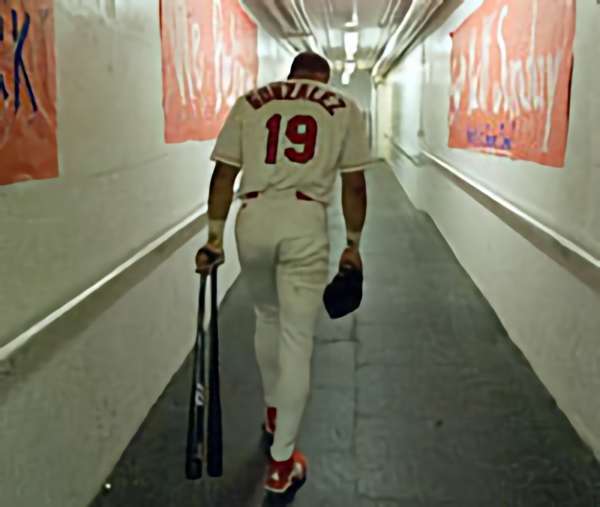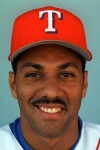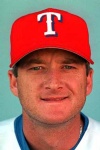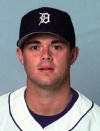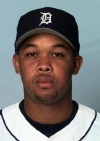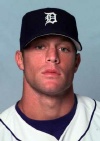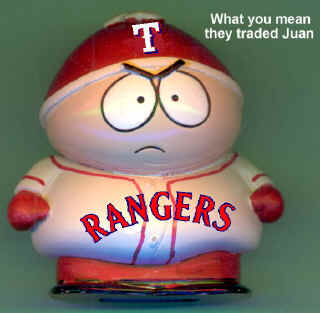 TEXAS RANGERS ANNOUNCE UNIFORM CHANGES FOR 2000
TEXAS RANGERS ANNOUNCE UNIFORM CHANGES FOR 2000
FOR RELEASE: 3:00 p.m. (CST), Wednesday, December 8, 1999
The Texas Rangers introduced a series of uniform changes for the 2000 season this afternoon at The Ballpark in Arlington.
The road uniform has undergone significant change with a darker shade of gray and blue replacing red as the dominant trim color. The Rangers will also wear blue road caps in 2000.
In addition, the team will introduce an all-blue alternate jersey for next season that can be worn either home or away. The Rangers will also have an alternate blue cap for both home and road use.
The primary home uniforms with red trim and caps will remain the same. All three jerseys as well as the batting practice jersey will feature a State of Texas flag patch on the left shoulder and a 1999 A.L. West Division champs patch on the left shoulder. The Rangers will also switch from red to black shoes both home and road. The team also introduced a new batting practice jersey.
This marks the first time that Texas has made a uniform change since 1994, the first year the club played at The Ballpark in Arlington. It will be the sixth different home uniform and the eighth different road outfit that the club has won since 1972. It also marks the first time that the Rangers have ever had different color caps for home and road as well as the first alternate cap in club history.
Highlights and features of the new uniforms:
- Road Uniform: Jersey is gray with blue piping on sleeves. “TEXAS” in blue block lettering with red, white, and gray outline is on front of jersey. Player’s name and number in blue block lettering with red and white outline is on back of jersey. Jersey has button down front. Pants are gray with blue piping down each leg.
- Alternate Jersey: Jersey is navy blue with white piping on sleeves. “TEXAS” in white and gray beveled lettering with blue and red outline is on front of jersey. Player’s name and number in white block lettering with blue and red outline is on back of jersey. Jersey has button down front.
- Road Cap: Solid blue with white “T” outlined in blue and red on front. Red button on top. Alternate Cap: Solid blue with red “T” outlined in blue and white on front. Red button on top.
- Accessories: The Rangers will have blue stirrups, belts, sleeves, batting helmets, and catching equipment on the road with red accessories remaining for home.
- Shoes: Black both home and road.
- Home and Road Batting Practice Jersey: Jersey is navy blue with ‘RANGERS” in white and gray block lettering with blue and red outline is on front of jersey. Player’s number in white block lettering with blue and red outline is on back of jersey. Jersey has button down front.
Rangers’ players modeled the uniforms this afternoon. Pitcher Tim Crabtree wore the home uniform, first baseman Rafael Palmeiro modeled the road uniform, and outfielder Rusty Greer sported the alternate jersey and cap with the road pants.
The uniforms were designed in a joint effort by the Rangers and Major League Baseball. The new Rangers road and alternate caps as well as new replica jerseys will go on sale today at the Grand Slam Gift Shop at The Ballpark in Arlington. Authentic road and alternate jerseys are on order and expected to be available in the next week to ten days.



